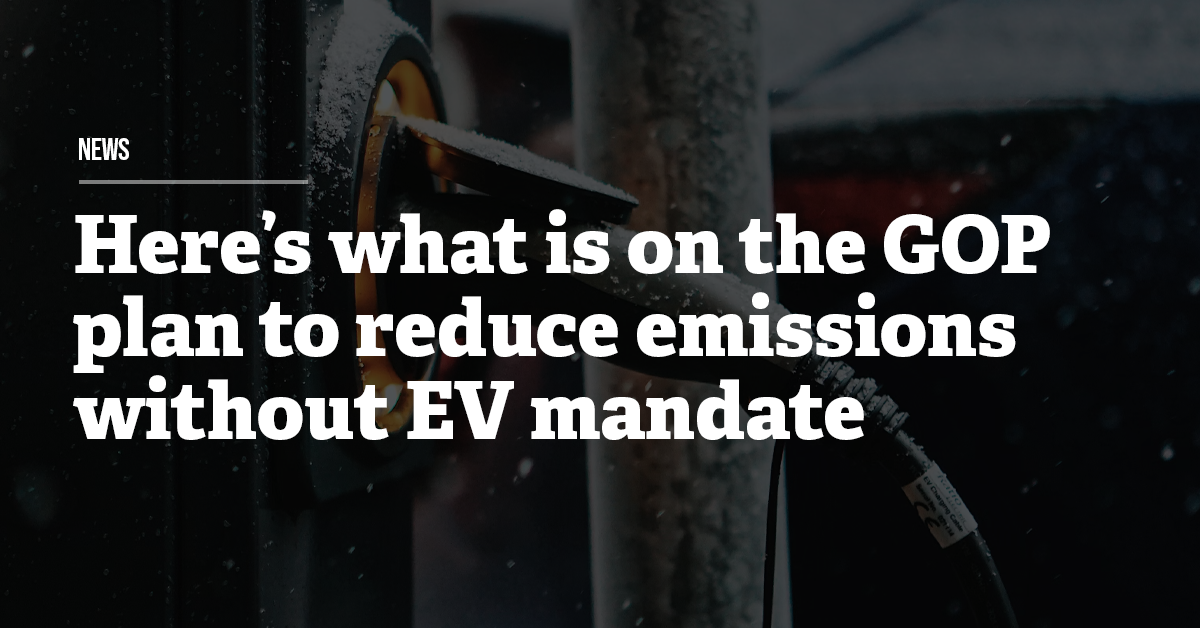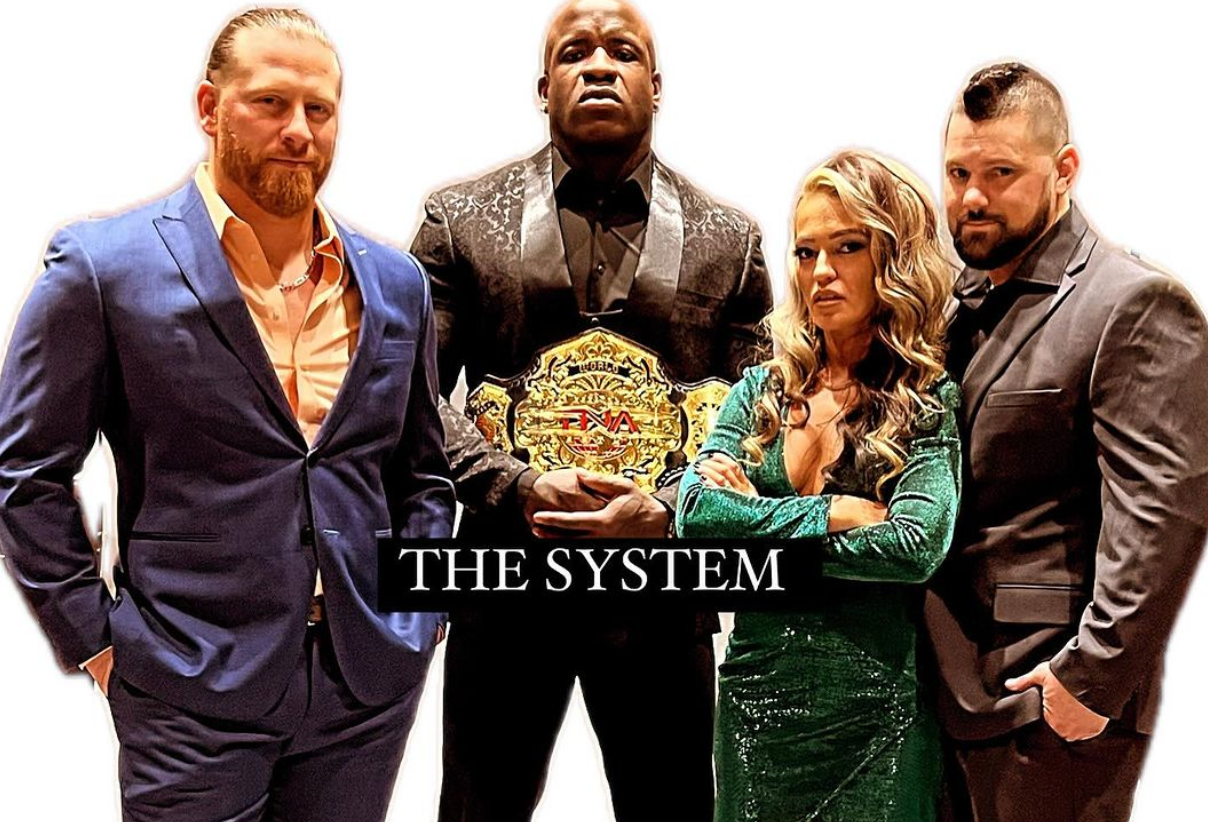Dealers Intensify Fight Against EV Mandate Requirements

Table of Contents
Financial Burden and Infrastructure Challenges
The rapid push for EV adoption presents significant financial and infrastructural hurdles for car dealerships. Meeting the demands of EV mandates requires substantial investment, raising concerns about profitability and return on investment (ROI).
-
High upfront costs: Upgrading dealerships to accommodate EV charging infrastructure is expensive. This includes installing high-powered charging stations, upgrading electrical grids, and potentially renovating service bays to handle EV-specific repairs. These costs can run into hundreds of thousands, even millions, of dollars per dealership, depending on size and location.
-
Limited ROI on EV charging infrastructure: The return on investment for installing EV charging stations is uncertain, particularly in areas with low EV adoption rates. Dealerships risk significant capital expenditure with no guarantee of sufficient usage to justify the investment. This is further complicated by the potential for rapid technological advancements in charging technology, rendering current investments obsolete sooner than expected.
-
Lack of government support: Many dealers express frustration over a lack of sufficient government support and funding for infrastructure development. While some incentives exist, they often fall short of covering the substantial costs associated with EV infrastructure upgrades. More targeted and comprehensive financial assistance is needed to ease the burden on dealerships.
-
Securing financing: Securing loans and attracting investors for EV-related upgrades can be challenging. The perceived risk associated with EV adoption, coupled with the high upfront costs, can make it difficult for dealerships to obtain the necessary financing. This financial uncertainty further hinders the ability of dealerships to meet the mandate requirements.
-
Profitability concerns: Dealers are also concerned about the profitability of EV sales compared to traditional internal combustion engine (ICE) vehicles. Lower profit margins on EVs, coupled with the added costs of infrastructure upgrades, raise significant concerns about the long-term financial viability of dealerships.
Consumer Demand and Market Readiness
While EV mandates push for rapid adoption, the reality is that consumer demand and market readiness are lagging significantly behind. Several key factors contribute to this disparity.
-
Slow consumer adoption: Several factors hinder widespread EV adoption. Range anxiety, limited charging infrastructure, long charging times, and higher purchase prices compared to gasoline-powered vehicles all contribute to consumer hesitancy.
-
Insufficient charging infrastructure: The lack of widespread public charging infrastructure remains a major barrier to EV adoption. In many regions, charging stations are sparsely distributed, making long-distance travel in EVs inconvenient or impossible for many consumers. This lack of infrastructure significantly impacts consumer confidence and willingness to purchase EVs.
-
Mismatched supply and demand: The availability of specific EV models may not always align with consumer preferences. Dealerships may be mandated to stock specific models that don't meet the needs or desires of their local customer base, leading to unsold inventory and further financial strain.
-
Uncertain future incentives: Changes in government incentives and subsidies can greatly impact consumer demand. Uncertainty surrounding future policies creates hesitation among consumers and makes it difficult for dealerships to plan effectively.
-
Insufficient consumer education: Consumer education campaigns haven't kept pace with the implementation of EV mandates. Many consumers lack a clear understanding of EV technology, charging infrastructure, and the benefits and drawbacks of EV ownership. Increased awareness and educational initiatives are crucial to boosting consumer confidence and driving demand.
Dealer Preparedness and Training
Meeting the demands of the EV revolution requires dealerships to invest significantly in employee training and technological upgrades. The transition poses significant challenges to their workforce and operational efficiency.
-
Lack of sales training: Many dealership employees lack the necessary training to effectively sell and explain the features and benefits of EVs. Specialized training programs are essential to equip sales staff with the knowledge and skills to confidently address customer inquiries and concerns.
-
Service department challenges: EV service and repair require specialized tools, equipment, and expertise. Dealerships need to invest heavily in upgrading their service departments to handle EV-specific maintenance and repairs. This represents a substantial financial investment and a potential skills gap.
-
Specialized technical training: Comprehensive training programs must be developed to address the unique technical aspects of EVs, covering areas such as battery technology, electric motor systems, and high-voltage safety procedures. This necessitates significant investment in training materials and instructor expertise.
-
Recruitment and retention: Attracting and retaining qualified staff with EV expertise is becoming increasingly challenging. Competition for skilled technicians and service advisors is fierce, and dealerships must offer competitive salaries and benefits to attract and retain talent.
-
Job security concerns: Employees specializing in ICE vehicles may worry about their job security as the industry transitions to EVs. Addressing these concerns through retraining programs and career development initiatives is essential to maintain morale and productivity within dealerships.
Lobbying Efforts and Political Pressure
Facing these significant challenges, automotive dealers are intensifying lobbying efforts and political advocacy to influence policy and create a more sustainable transition to EVs.
-
Increased lobbying: Dealer associations are increasing their lobbying activities to pressure policymakers to reconsider overly aggressive timelines and provide more support for infrastructure development and employee training.
-
Industry collaboration: Dealers are collaborating with other industry stakeholders, including manufacturers and suppliers, to create a united front in advocating for more realistic and achievable EV mandates.
-
Advocating for realistic timelines: Dealers are lobbying for more gradual implementation of EV mandates, giving them sufficient time to adapt their infrastructure and train their employees. A phased approach would better allow the market to adjust to increased EV adoption.
-
Highlighting economic consequences: Dealers are emphasizing the potential negative economic consequences of rapid transitions, such as job losses and business closures. Highlighting these potential risks can sway policymakers toward more balanced and realistic approaches.
-
Seeking regulatory clarification: Dealers are actively seeking clarification and adjustments to regulations to alleviate concerns about feasibility and compliance. This involves actively engaging with regulatory bodies to find mutually acceptable solutions.
Conclusion
The fight against stringent EV mandate requirements is a complex issue with far-reaching implications for the automotive industry. Car dealers are facing significant financial burdens, infrastructure challenges, and consumer-related concerns. The lack of sufficient government support and the rapid pace of mandated change are fueling the resistance. Dealers are employing various strategies, including lobbying and advocating for more realistic timelines and improved infrastructure, to address these challenges. Understanding the concerns of dealerships is crucial for policymakers to ensure a smooth and successful transition to electric vehicles while minimizing negative impacts on the automotive industry. Therefore, a collaborative approach involving open dialogue between policymakers and dealerships is necessary to navigate this complex issue and avoid unintended consequences stemming from aggressive EV mandate requirements. A balanced approach that acknowledges the concerns of dealers and promotes responsible EV adoption is essential for a sustainable future for the automotive sector. Further collaboration and realistic policies are needed to ease the transition and ensure a sustainable future for the automotive industry.

Featured Posts
-
 Hollywoods Impact On Casino Design And Atmosphere
May 18, 2025
Hollywoods Impact On Casino Design And Atmosphere
May 18, 2025 -
 2025s Top Rated Virginia Online Casinos Games Bonuses And More
May 18, 2025
2025s Top Rated Virginia Online Casinos Games Bonuses And More
May 18, 2025 -
 Spencer Brown Live At Audio Sf May 2 2025
May 18, 2025
Spencer Brown Live At Audio Sf May 2 2025
May 18, 2025 -
 The Hardys And Moose Tna Sacrifice Aftermath And Injury Update
May 18, 2025
The Hardys And Moose Tna Sacrifice Aftermath And Injury Update
May 18, 2025 -
 Nyt Mini Crossword May 1 Solving The Marvel Avengers Clue
May 18, 2025
Nyt Mini Crossword May 1 Solving The Marvel Avengers Clue
May 18, 2025
